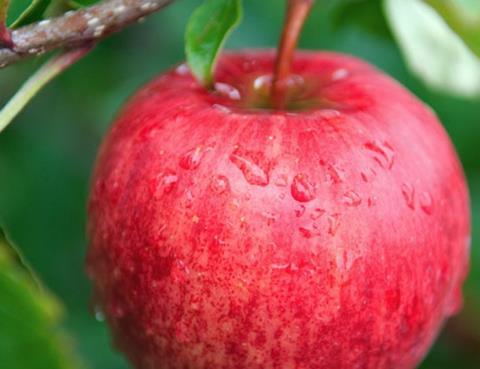Multi-million-dollar project to help industry achieve its goal of becoming spray-free by 2050

A NZ$15m research and development project aims to position New Zealand as a world leader in sustainable apple production.
Led by peak body New Zealand Apples and Pears Inc (NZAPI), the seven-year programme aims to reduce pesticide application on the country’s orchards by 50 per cent by 2030.
Programme leader, Rachel Kilmister, hoped this goal could be delivered through the use of targeted and smart technology, such as remote sensing for detecting pests and diseases in real time, enabling early intervention without spraying.
Lure and dispenser-based technologies that prevent pests from entering the orchard will be developed as part of the project.
“New Zealand is already well placed globally and respected as the producer of the best apples in the world,” said Kilmister. “The outcomes of this project will be a unique global selling proposition for New Zealand apples to the consumer as the safest, sustainable apples with enhanced environmental outcomes produced with no chemicals.
“To achieve this, the project will create innovative solutions to reduce and eliminate agrichemical use and sprays that will also reduce the industry’s carbon footprint. We must respond to the growing demand by export markets for more sustainable production.”
The programme’s work will be framed by the industry’s target of becoming spray-free by 2050.
Kilmister said varietal innovation would play a key role in achieving this goal.
“New apple varieties created by Prevar are already being bred to be pest and disease resistant and will be critical for achieving the spray-free target,” said Kilmister.
“Achieving a spray-free status by 2050 would also result in a reduction of industry greenhouse gas emissions by 35 per cent.”
The project is being funded by the New Zealand government through the Ministry for Primary Industries’ (MPI) Sustainable Food and Fibre Futures fund to the tune of NZ$7.4m. The balance is being funded by industry.
NZAPI chief executive, Terry Meikle, said the programme would protect NZ$1.1bn of forecast revenue over the eight years from 2023 to 2030.
“Economic returns to New Zealand will be realised through continued growth in export volume and value reaching NZ$2bn by the same year (2030),” said Meikle.
“This is a much-needed boost for our industry and needed to enable the industry to move forward. It is a significant project with full support from government and industry.”




